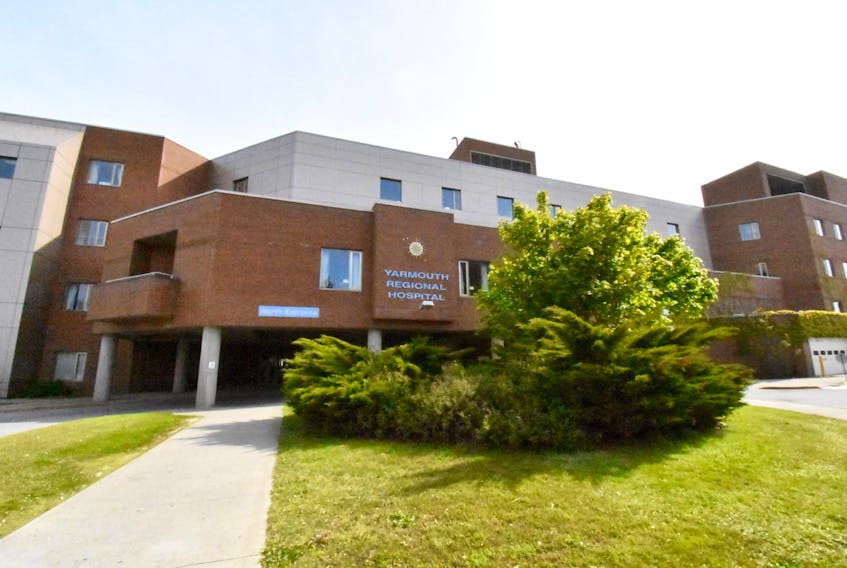YARMOUTH, N.S. — Cancer Care Nova Scotia is hoping a suspension of cancer clinics in Yarmouth and New Glasgow – due to the unavailability of oncologists to travel – will be a short-term situation.
In the meantime, with patients now having to drive to Halifax, efforts are underway to reduce travel by implementing more telemedicine for those impacted by the situation.
The clinics take place once or twice a month. A letter sent to the cancer care program from the head of the province’s medical oncology unit says workload issues mean doctors are unable to make trips to Yarmouth and New Glasgow.
“There is a serious manpower shortage and it’s not due to inability to recruit, it’s due to just not having approved positions,” says Dr. Drew Bethune with the Nova Scotia Health Authority’s Cancer Care Program. “They’re just pushed so terrible, they’re worried about safety.”
By safety, he says burnout is a major concern.
“A Halifax oncologist should have 160 patients per year on their list. The treatments are so complex that it amounts to 2,220 to 2,400 interactions with reviewing results or charts,” he explains. “Right now, I believe the two coming to Yarmouth are scheduled to have about 200 patients on their roster per year. So it’s become really hard.”
This situation is separate from a cancer care review that took place in Yarmouth last year.
OTHER OPTIONS
Bethune travelled to Yarmouth last week to meet with hospital staff, as a follow-up to informing patients about the situation, and was interviewed by the Tri-County Vanguard. There are 47 patients using the clinics in Yarmouth and 65 in New Glasgow.

How long the clinic suspensions go on for will depend on how successful oncology is in getting two more positions, Bethune says. The clinics were initially established to cut down on travel for patients.
“We’d rather have one physician travel instead of 20 patients travel back and forth,” Bethune says. Which is why another option – that Bethune says needed to be explored anyway – is being explored. Telemedicine, he says, is underutilized in the Yarmouth area, although it has been “quite successful” when it comes to radiotherapy, where a traveling clinic used to exist here but no longer does.
“That had to stop five years ago and our telemedicine has been successful in this area so that patients don’t have to travel to Halifax for consultations,” he says.
Dr. Bethune says a telemedicine program is more than just a computer.
“It’s having a nurse and a general practitioner oncologist on the other end to manage the patient’s concerns and treatments,” he says.
“(With the clinics) the oncologist will see somebody to help decide on treatments and they like to see how patients are tolerating the treatments,” he says. “Right now they like to do it face-to-face but there may be options, if we have a good telemedicine system, that we may not need all of those face-to-face meetings.”
At the traveling clinics new patients meet with an oncologist for an assessment. Different treatment options are explained. The intention is to ensure patients can make an informed decision about their treatment. With many new drug protocols and new treatments available, it is a complicated process, Bethune says. While the clinics see high volumes of patients, it’s not necessarily the same patients during each clinic. And the doctors also only see patients for certain cancers.
“They don’t see lung cancer patients because they only have so much expertise,” says Bethune.
He says Cancer Care Nova Scotia is advocating strongly to get two extra oncologist positions filled.
“I’ve had high-level conversations with the Department of Health and with the minister and they understand how important and how critical the situation is and I’m optimistic they will respond to this very quickly,” he says.
DEPARTMENT’S REPONSE

About his meeting with Dr. Bethune, Nova Scotia Health Minister Randy Delorey says, “He explained the situation and the work that they’ve been doing in their efforts to minimize impacts and their suggestions and recommendations on how to move forward. We’re quite confident that we will be able to come to a long-term resolution to the situation that is really guided by Dr. Bethune and his team. I have 100 per cent have confidence in the work that they are doing.”
Delorey says there are a number of processes to get the clinics running again, that includes identifying funding.
“Anytime a new clinical, particularly specialist, position comes through there are some processes that are in place to do that,” he says. “But, again, that’s why the work they’ve been doing includes looking at steps, as well, for enhanced telemedicine, while processes go through to review and improve any potential for additional positions.”
One of the recommendations coming out of last year’s cancer care review in Yarmouth was already to address transportation issues when it comes to access to cancer care.
An underlying concern now is that without the traveling clinics there may be some people – for whom transportation is a barrier – that may forego treatment if they can’t travel to Halifax.
Bethune says this weighs heavily on his mind. Delorey says this concerns the department as well.
“Without having the traveling clinic there will be people who will say I’m just not going to go to Halifax. I’m very concerned about this,” says, Bethune, pointing again to telemedicine. “We have to institute something as soon as possible.”
Bethune is asked if he is confident that the traveling clinics will indeed be reinstated, since sometimes when something is taken away, it is not always brought back.
“When they have their manpower back to the appropriate level we plan to reinstitute traveling clinics,” he says.









